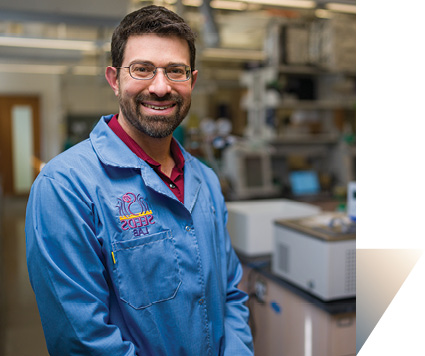2021 Research Review


Research for healthy lives.
elcome to the latest issue of Spark, our annual review of the most innovative and high-impact research from the University of New Hampshire. And what a year it’s been: UNH continues to rise in research awards, and expenditures were higher than ever.
While these metrics are familiar and essential to our research enterprise, Spark aims to chronicle the research and scholarly work that fuels our mission as the state’s flagship public university to create opportunities and improve lives. Perhaps no need is greater, in New Hampshire and across the world, than addressing health challenges.
The feature stories in this issue explore the continuum of health-related research from ideas to impact, from the lab to the grocery store, to schools, treatment facilities and mental health centers. “Bold Ideas, Better Outcomes” details ways UNH is leveraging major federal funding to grow an ecosystem of biomedical expertise that advances our capacity to address health issues like wound healing, diabetes and Alzheimer’s disease.
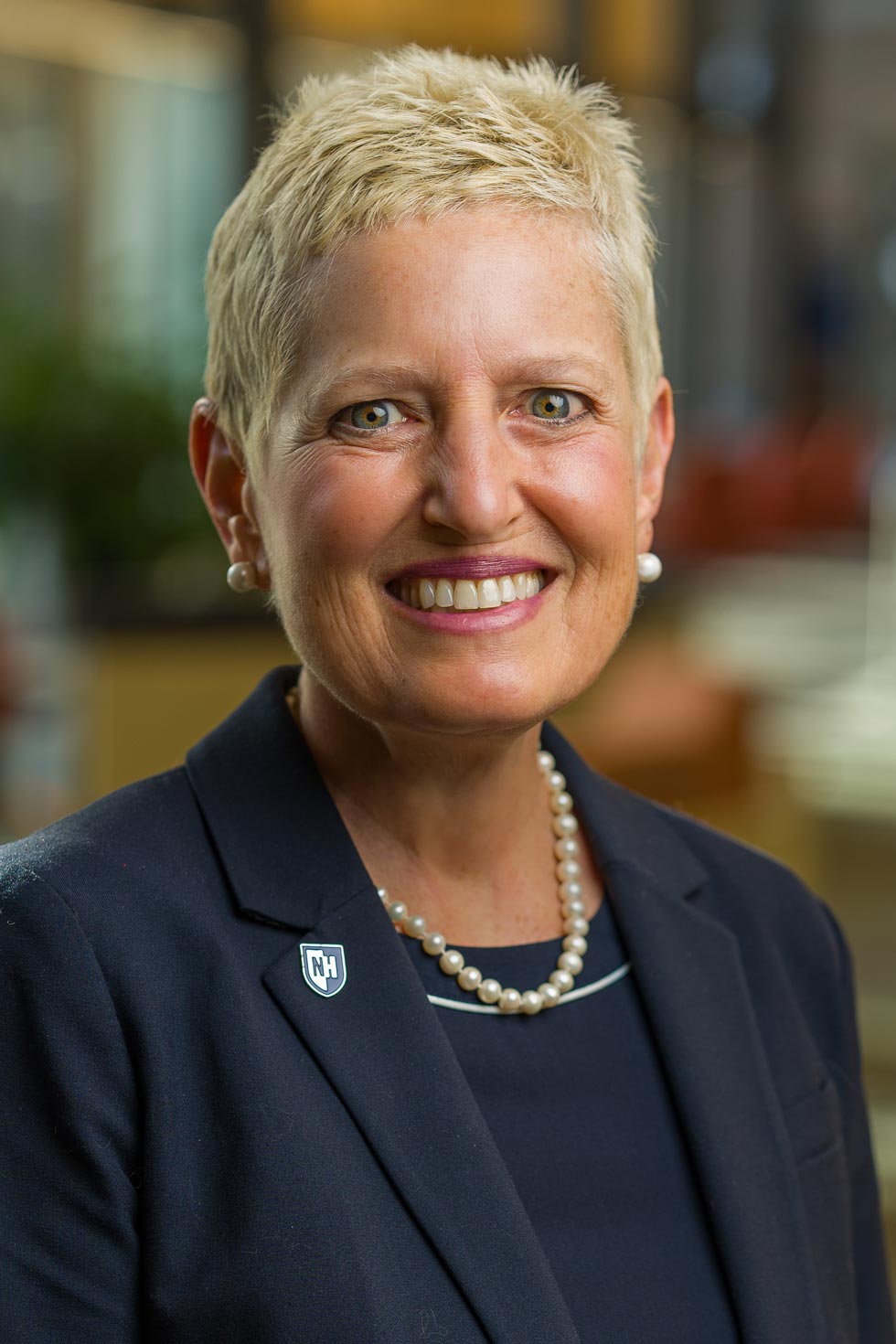
I hope you enjoy these stories of UNH’s research success — but even more, I hope you’ll engage with us. “Industry Partnerships at The Edge” describes several industry collaborations and details a proposed innovation neighborhood that will transform our campus and boost economic development for the state. We think of it as UNH’s welcome mat for additional opportunities — we look forward to discovering and creating with you.
Senior Vice Provost for Research, Economic Engagement and Outreach
Data Points






Findings
Safety
Everywhere
A new fieldwork safety initiative at UNH aims to protect researchers from perils they may encounter in remote, sometimes rugged fieldwork sites — and from interpersonal hazards that can derail careers. Led by UNH’s Office of Environmental Health and Safety, the project emerged from a growing recognition across campus and by leadership for intensified focus on safety in the field, as well as from the National Science Foundation-funded Unlearning Racism in the Geosciences, or URGE, effort at UNH.
Sophie Burke, research fieldwork safety coordinator (also a postdoctoral researcher in the Earth Systems Research Center), notes that research fieldwork has moved beyond “the Indiana Jones trope.” This project expands the notion of what’s risky or safe to include the perspectives of all members of an increasingly diverse community of researchers.
And the initiative doesn’t just consider physical safety. It’s engaged UNH’s renowned Prevention Innovations Research Center (PIRC) to develop trainings that focus on interpersonal violence prevention. As universities nationwide develop fieldwork safety plans, in part responding to new requirements from federal funding agencies, PIRC’s involvement distinguishes UNH’s initiative. Jane Stapleton, executive director of practice at PIRC, co-leads the project with Burke.
“We’re creating this multi-pronged approach to providing researchers with the resources they need to develop safe and inclusive fieldwork campaigns,” says Burke. “Our hope with this program is to take it beyond that physical lens and broaden it to include those interpersonal perspectives to allow for the program to have a holistic approach to safety.”
Beth Potier

testing a
fundamental
force

New research from a team of physicists led by UNH significantly advances our understanding of how protons, which comprise 95% of the universe, interact with each other. The results, published in the journal Nature Physics, provide a benchmark for testing the strong force, one of the four fundamental forces in nature.
“There’s a lot still unanswered about both of those things, the proton and the strong force,” says lead author David Ruth ’22G, a Ph.D. candidate at UNH when he did the research. “This brings us a little bit closer to that understanding. It’s a necessary piece of two very fundamental things in the universe.”
The strong force governs how what’s internal to the atom’s nucleus — neutrons, protons and the quarks and gluons that make them up — bind together. It is the least understood of the four fundamental forces of nature, which include gravity, electromagnetism and the weak force.
“If we really want to understand our world, we have to have a solid theory of that force,” says professor of physics Karl Slifer, Ruth’s advisor and a lead collaborator on the study.
The researchers tested two state-of-the-art, competing theoretical calculations of the strong force with an experiment probing the spin of the protons in a regime, or mode of operating, where the quarks that comprise them are at a great distance from each other. Their experimental findings agreed with one of the calculations but not the other.
“Because these calculations are very complex, each theory group makes different choices about how to do them,” Ruth says about the discrepancy. “If we’re going to understand the strong force, we need to know which one is right, which one is wrong.”
Beth Potier
Crustacean Consternation

Recent discovery indicates blue crabs may be making a home in Great Bay
It marked the first scientific documentation of a pair of recently mated blue crabs in Great Bay — the official confirmation that conditions in the estuary have become hospitable for the species that is typically found farther south.
Blue crabs have been captured occasionally in Great Bay for a decade, but this 2022 discovery is the first time researchers have found compelling evidence that the crabs are actually mating — and it’s a pretty big deal. It means a species that once only found itself in the colder, less hospitable waters of Great Bay by accident has now found the estuary’s waters — warming as the result of climate change — a welcome habitat.
Tasty crab cakes notwithstanding, blue crabs are potentially devastating to the estuary’s ecosystem, particularly its fragile oyster population. “The arrival of blue crabs capable of creating a sustained population poses a new threat to oysters and other native Great Bay Estuary species,” says Bonnie Brown, professor and chair of the department of biological sciences. Meyer, Stasse and Williams work in Brown’s Ecological Genetics Laboratory. The researchers, including NH Sea Grant’s Gabriela Bradt, published their findings in the journal Northeastern Naturalist.
Sarah Schaier
Warming
WARNING
“This is not something that is just a problem for the future,” says Cameron Wake, research professor in climatology and glaciology and an author of the 2021 N.H. Climate Assessment Report. “Human driven climate change is happening now and we’re at a critical crossroads. Those trends could get exponentially worse if we don’t take some action to slow the process and rapidly decrease emissions.”
ROBBIN RAY ’82
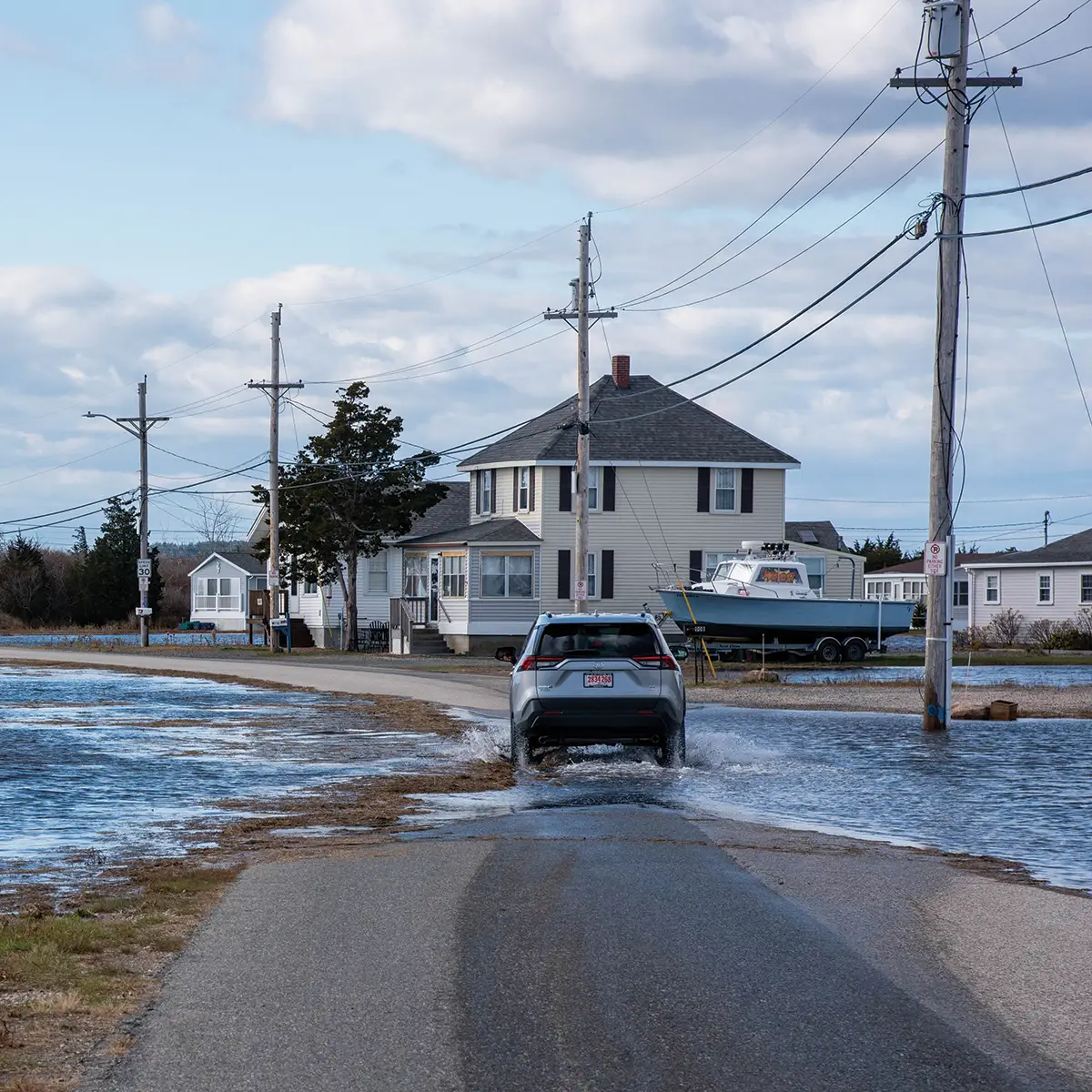
Key Findings
- temperatures across New Hampshire increased by an average of 3°F
- annual precipitation increased 12%
- most of New Hampshire could expect 50 to 60 days a year to be above 90°F
- snowfall could decrease by 20 – 50%
- winter temperatures are expected to be 10°F higher

Outreach That’s Not Overdue
Extension’s Check Out UNH brought marine programming to libraries
No, sea-level rise isn’t that extensive. Rather, a unique partnership between UNH Extension, NH Sea Grant’s Marine Docents and the state’s 235 public libraries shipped these briny resources to the farthest corners of New Hampshire. The initiative, called Check Out UNH, sent 35 Marine Docents to 76 libraries across the state, where they shared insights into New Hampshire’s small but mighty coastline and UNH’s extensive marine research with more than 1,700 patrons.
Launched with donor funding, Check Out UNH’s pilot year tapped into libraries’ existing summer reading program, themed “Oceans of Possibilities” for 2022. The Marine Docent program, which sends trained volunteers into communities and schools to share the wonder and science of the sea, was a natural collaborator to bring hands-on learning activities to the libraries.
The project exceeded expectations, with libraries clamoring to participate. “We’ve done summer library programs in the past, but this was another level,” says Dari Christenson, marine education program manager for NH Sea Grant. “I didn’t realize how popular it would be.”
Beth Potier
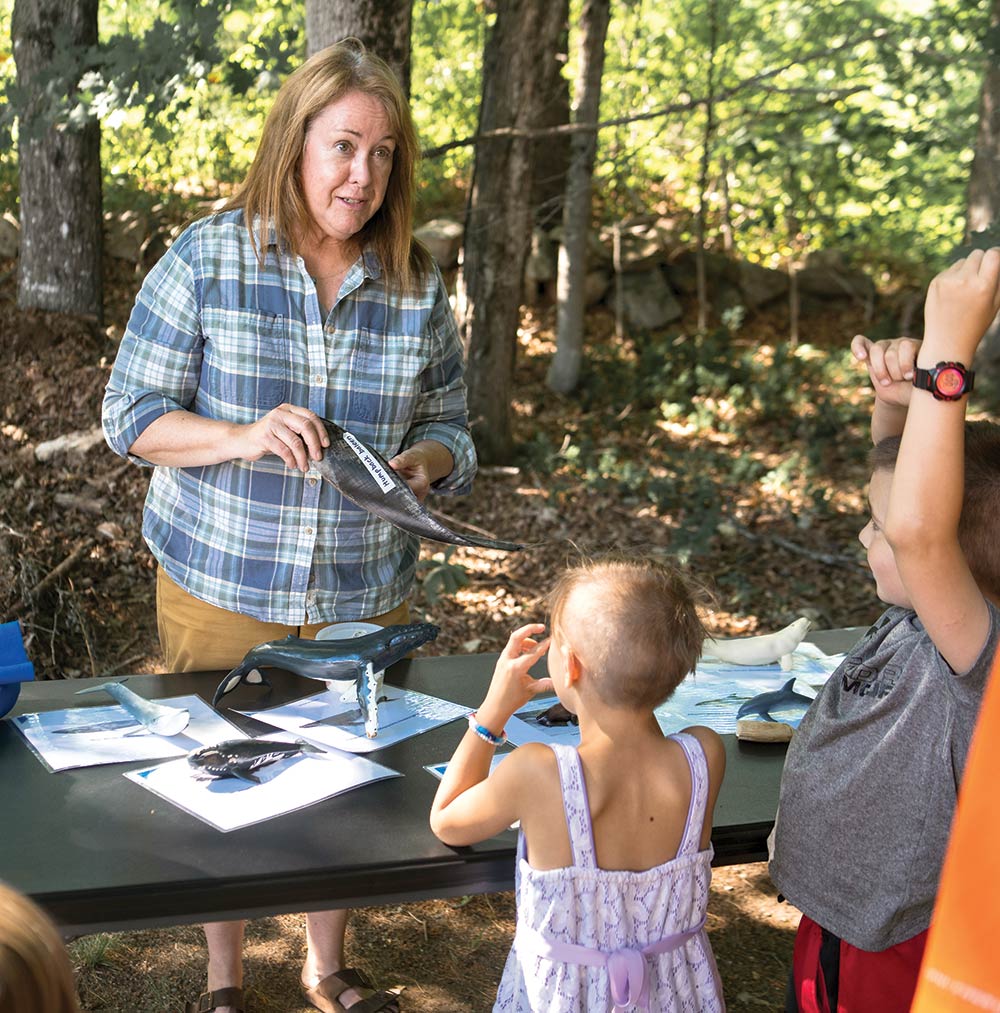
Faculty Honors

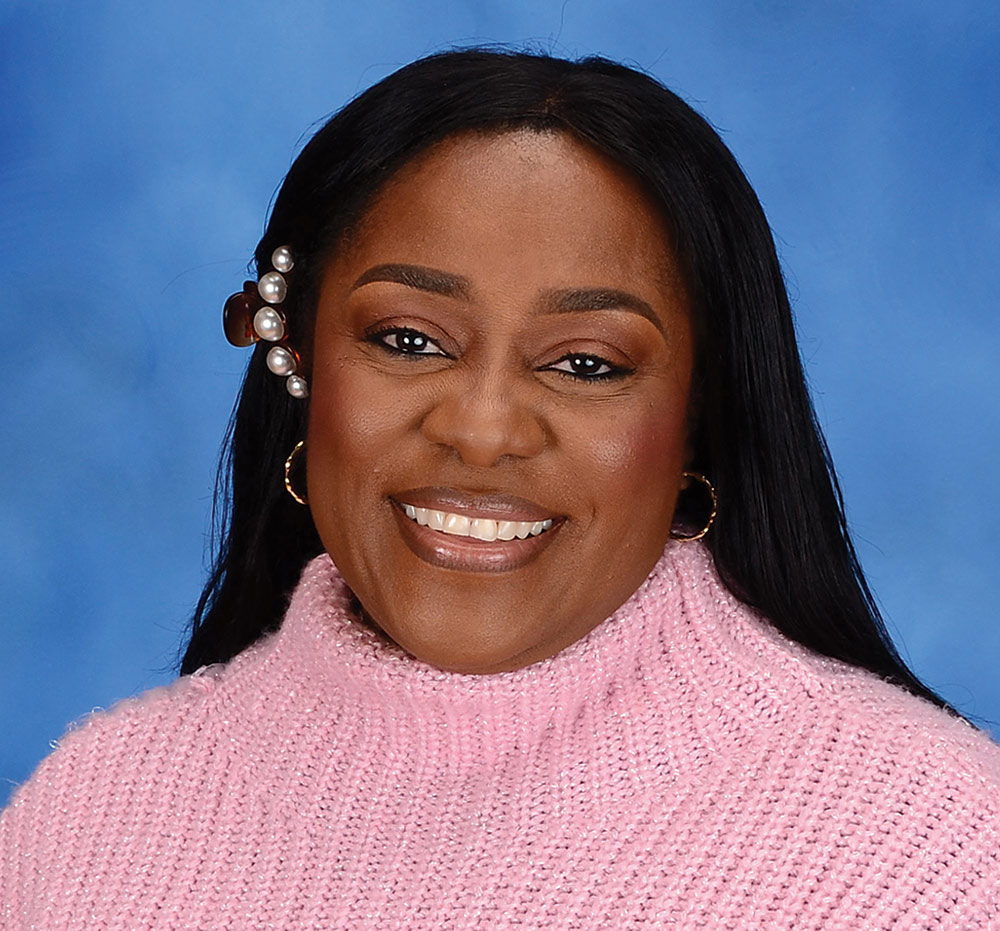
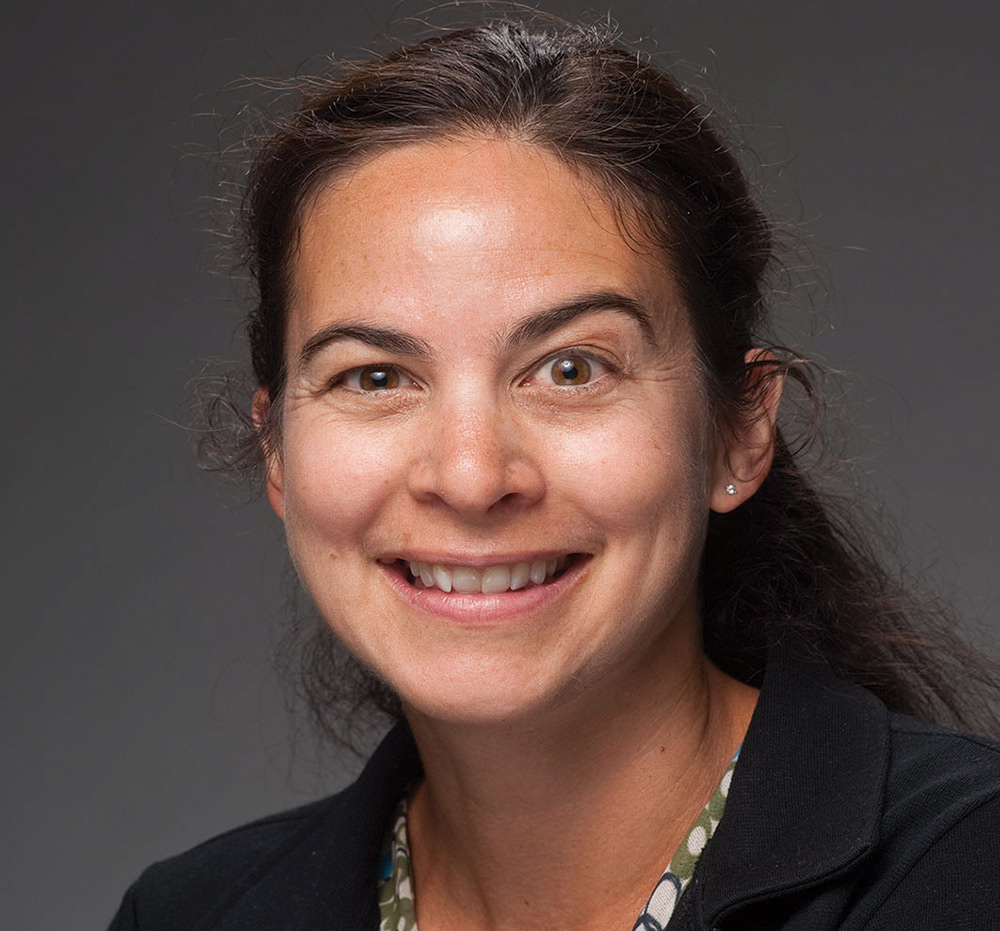

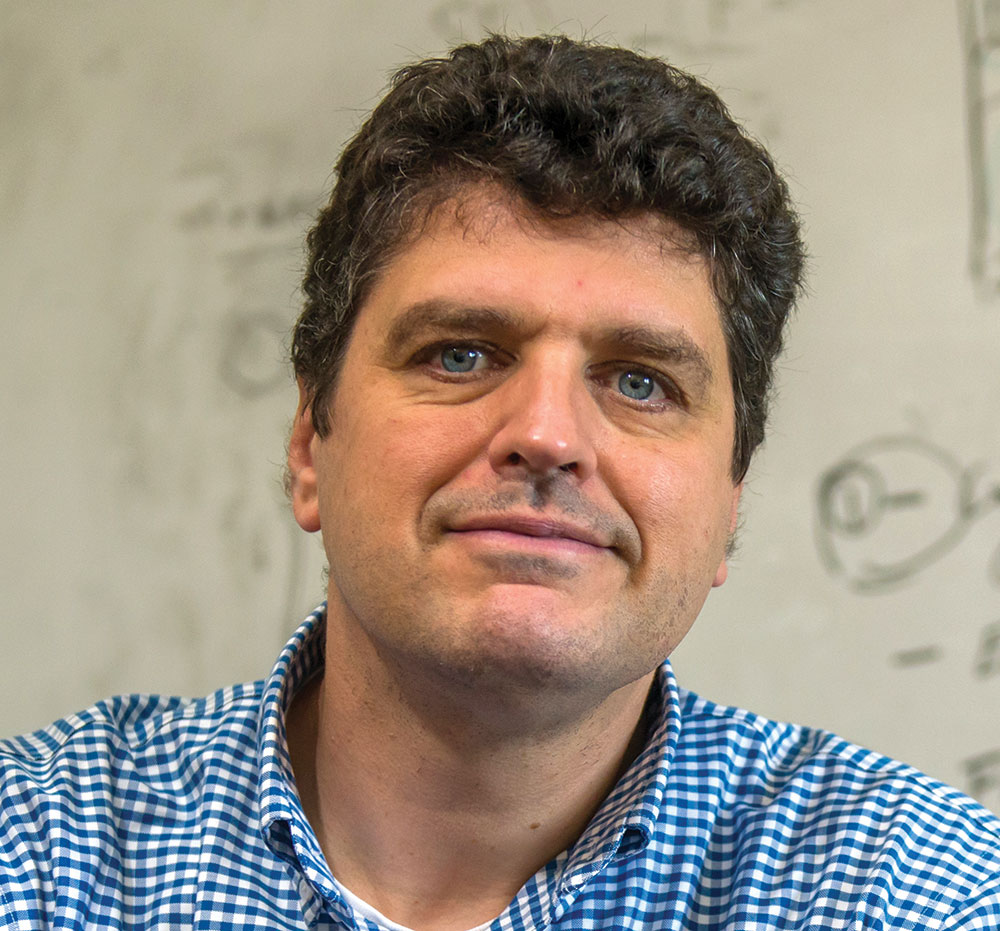
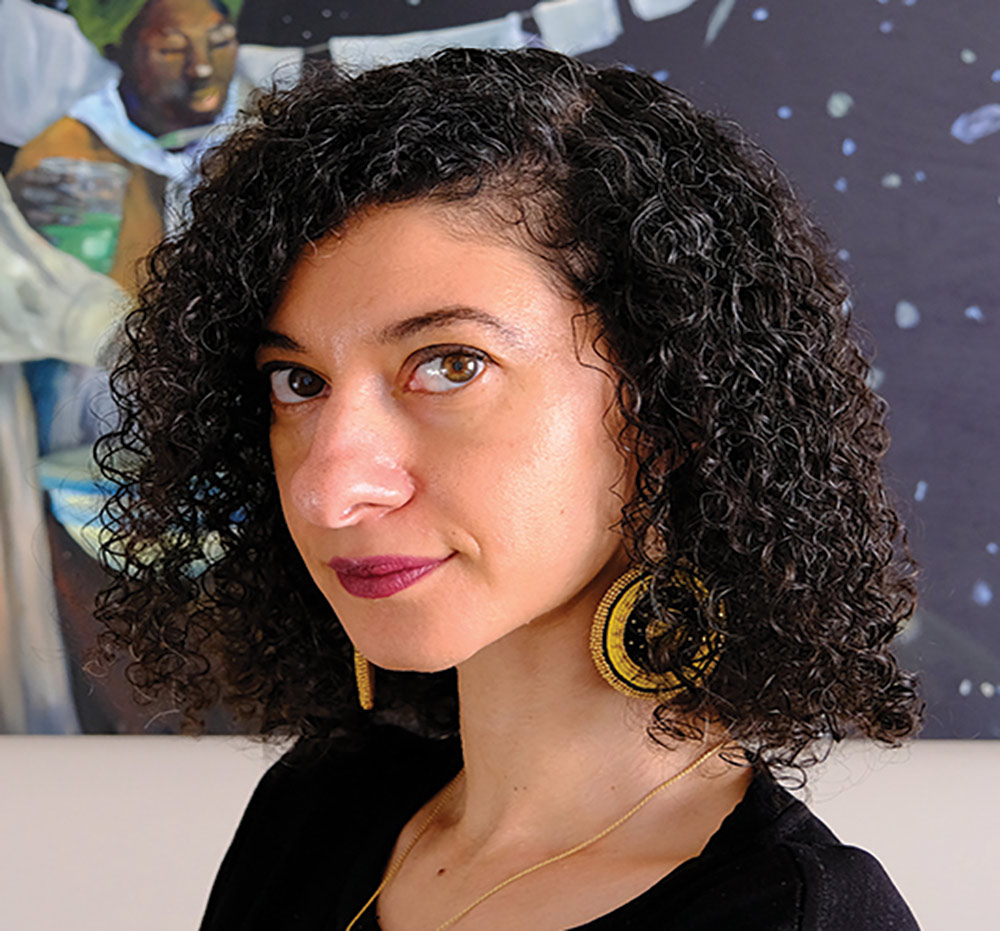
graduate student and postdoctoral researcher honors
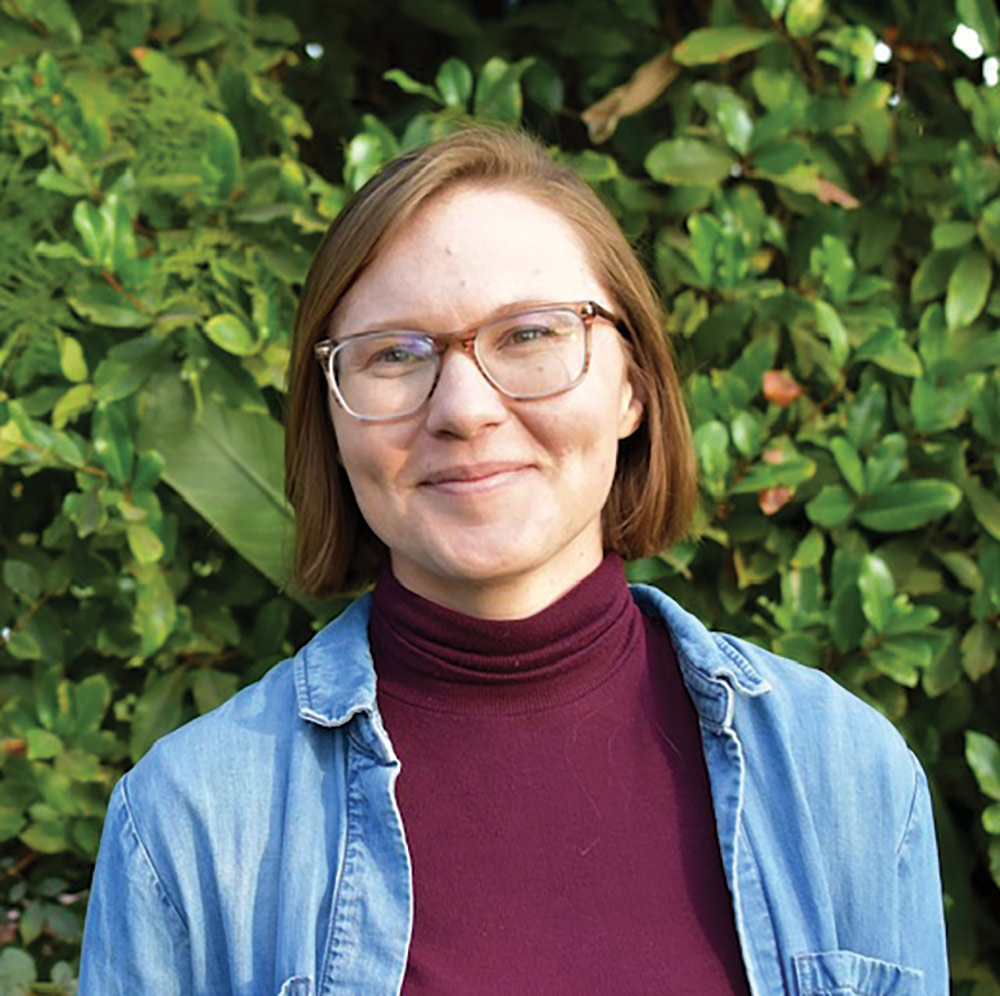
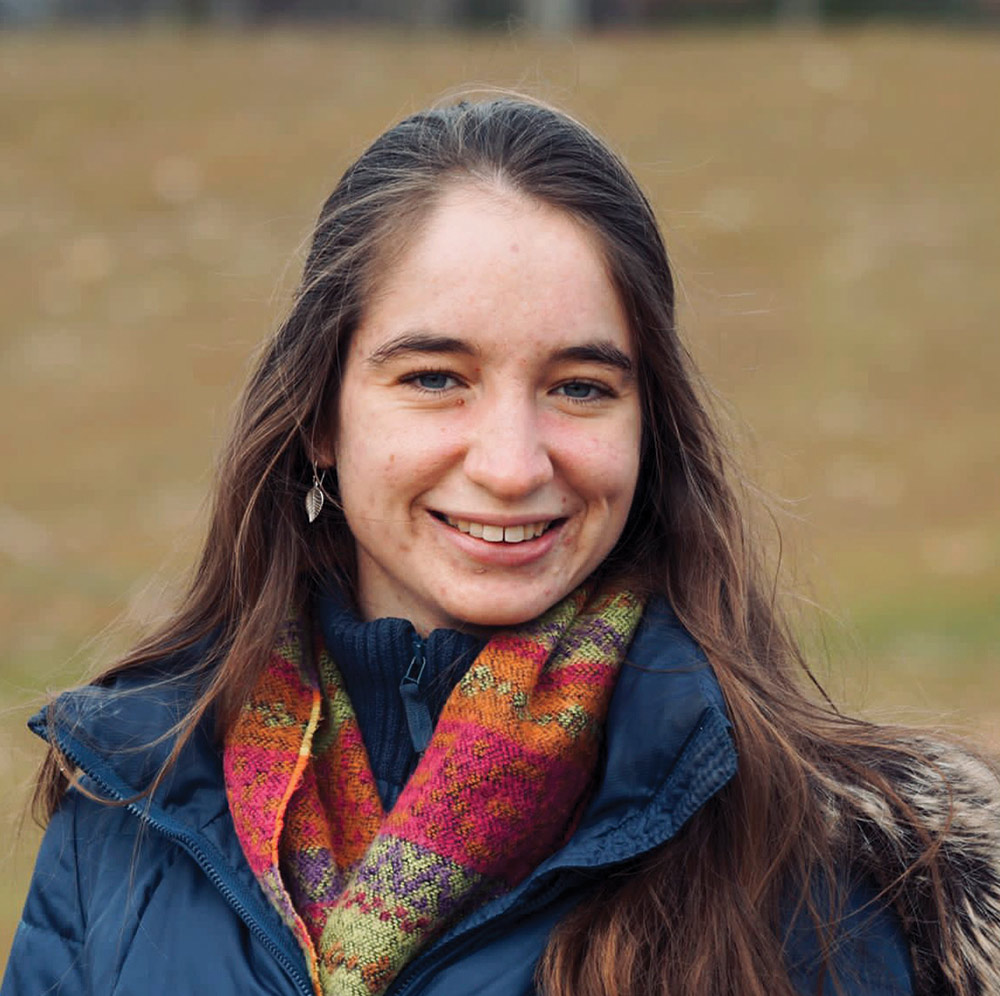
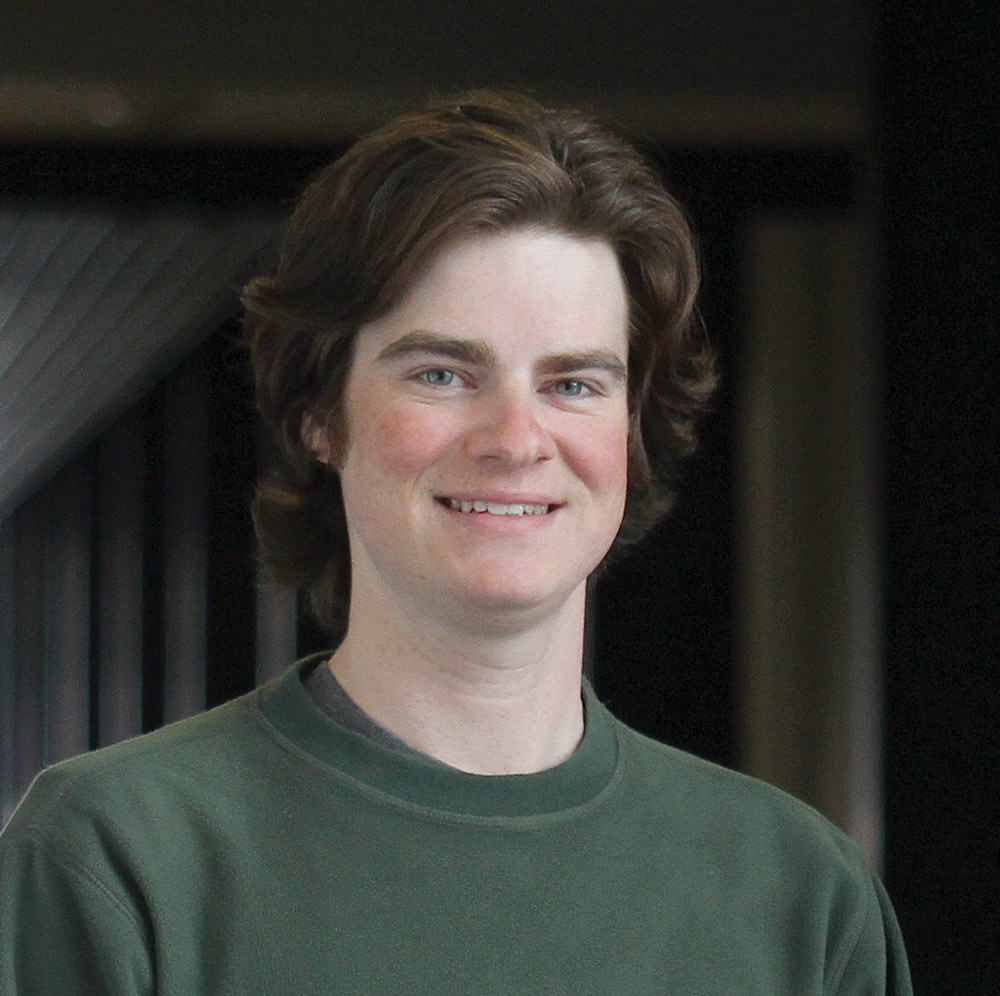
New Investigator Award
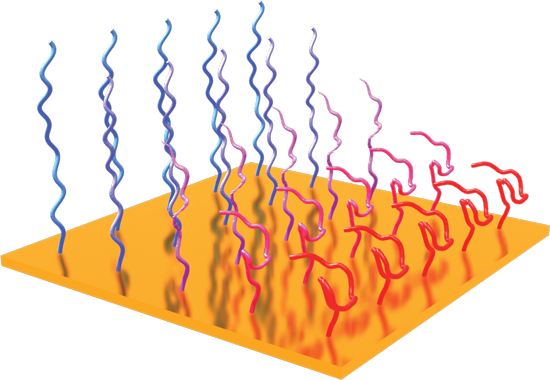
Bold Ideas Better Outcomes

cientific discoveries made by biomedical and bioengineering researchers at UNH over the past five years are transforming how a range of complex health conditions — from cancer and chronic wounds to neurological disorders such as Alzheimer’s and Parkinson’s — are being diagnosed, treated and prevented.
These discoveries, fueled by two major grant-funded initiatives at UNH, are helping accelerate the development of new vaccines, therapies, medical devices and products that are improving human health and well-being worldwide.
UNH’s Center of Integrated Biomedical and Bioengineering Research (CIBBR), funded by a $10 million National Institutes of Health (NIH) grant, is bridging the gap between basic biomedical and bioengineering research and clinical and commercial outcomes. And the New Hampshire Center for Multiscale Modeling and Manufacturing of Biomaterials (NH BioMade), a $20 million project funded by the National Science Foundation (NSF), is advancing New Hampshire’s rapidly growing biomaterials industry through knowledge generation, academic-industrial research partnerships and workforce development.
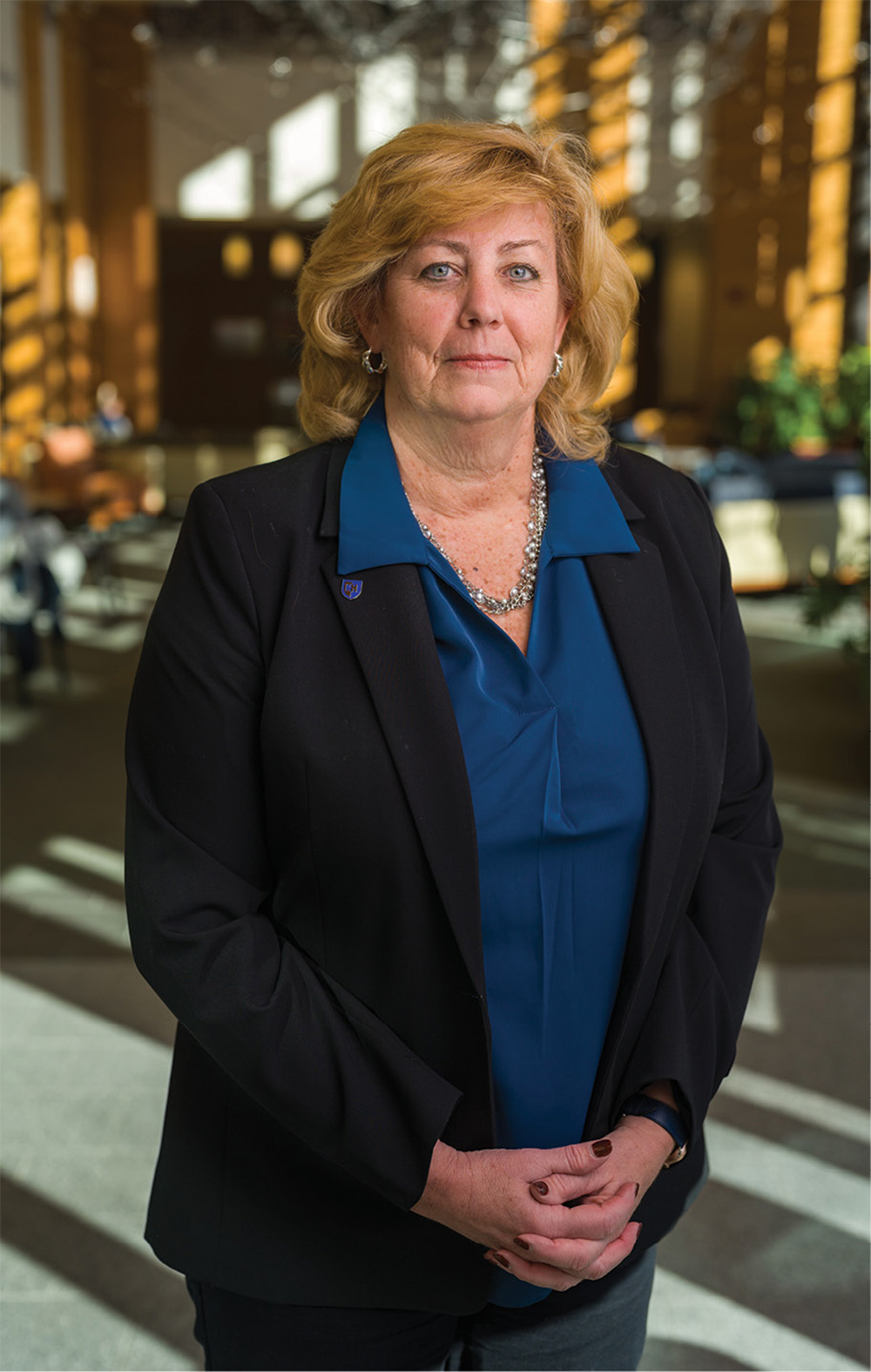
Roots of Connection
The Early Days
Out of the Shadows
Favorite Finding
A Book Now
INTERVIEW BY SHARON KEELER
Healthy Food for All


By Nicholas Gosling ’06
Researchers focus on the nutritional needs of historically marginalized communities
 ow does food and nutrition insecurity affect physical, mental and social well-being? How does it vary by race, ethnicity, gender and sexual orientation?
ow does food and nutrition insecurity affect physical, mental and social well-being? How does it vary by race, ethnicity, gender and sexual orientation?
These are questions that some UNH researchers are seeking to answer as they work to serve and support New Hampshire and regional communities that are marginalized based on their race and ethnicity, socioeconomic status, sexuality and gender identity.
Identifying Food Insufficiency in the LGBTQ+ Community
Using data from the U.S. Census Bureau, the researchers found that 13 percent of lesbian, gay and bisexual people experience food insufficiency — more than twice the rate of heterosexual people — and that more than 26 percent of transgender New England residents experience food insufficiency, more than four times the rate of cisgender people (people whose personal identity or gender corresponds with their birth sex).
However, it was at the intersection of gender identity, sexuality and race that they unearthed some of the most concerning findings, says Bruce. For example, one in three Black transgender New Englanders reported not having enough food in the past week.
Healthy Food for All


By Nicholas Gosling ’06
Researchers focus on the nutritional needs of historically marginalized communities

 ow does food and nutrition insecurity affect physical, mental and social well-being? How does it vary by race, ethnicity, gender and sexual orientation?
ow does food and nutrition insecurity affect physical, mental and social well-being? How does it vary by race, ethnicity, gender and sexual orientation?
These are questions that some UNH researchers are seeking to answer as they work to serve and support New Hampshire and regional communities that are marginalized based on their race and ethnicity, socioeconomic status, sexuality and gender identity.
Identifying Food Insufficiency in the LGBTQ+ Community
Analena Bruce, a sociologist and assistant professor of agriculture, nutrition and food systems, leads the Food Systems Lab at UNH, where she examines food supply chains and how to make them more equitable and resilient. Bruce recently collaborated with Jess Carson, research assistant professor at the Carsey School of Public Policy , and postdoctoral research associate Isaac Leslie to look at food insufficiency (defined as lacking adequate food in the past seven days) among LGBTQ+ (lesbian, gay, bisexual, transgender and queer, plus other sexual and gender identities) people living in New England.
Using data from the U.S. Census Bureau, the researchers found that 13 percent of lesbian, gay and bisexual people experience food insufficiency — more than twice the rate of heterosexual people — and that more than 26 percent of transgender New England residents experience food insufficiency, more than four times the rate of cisgender people (people whose personal identity or gender corresponds with their birth sex).
However, it was at the intersection of gender identity, sexuality and race that they unearthed some of the most concerning findings, says Bruce. For example, one in three Black transgender New Englanders reported not having enough food in the past week.
Cultivating Well-Being


These Granite Staters, and thousands more, are confronting the well-documented mental health and substance abuse crises with the help of innovative UNH programs that use research to improve behavioral health outcomes across the state.


These Granite Staters, and thousands more, are confronting the well-documented mental health and substance abuse crises with the help of innovative UNH programs that use research to improve behavioral health outcomes across the state.
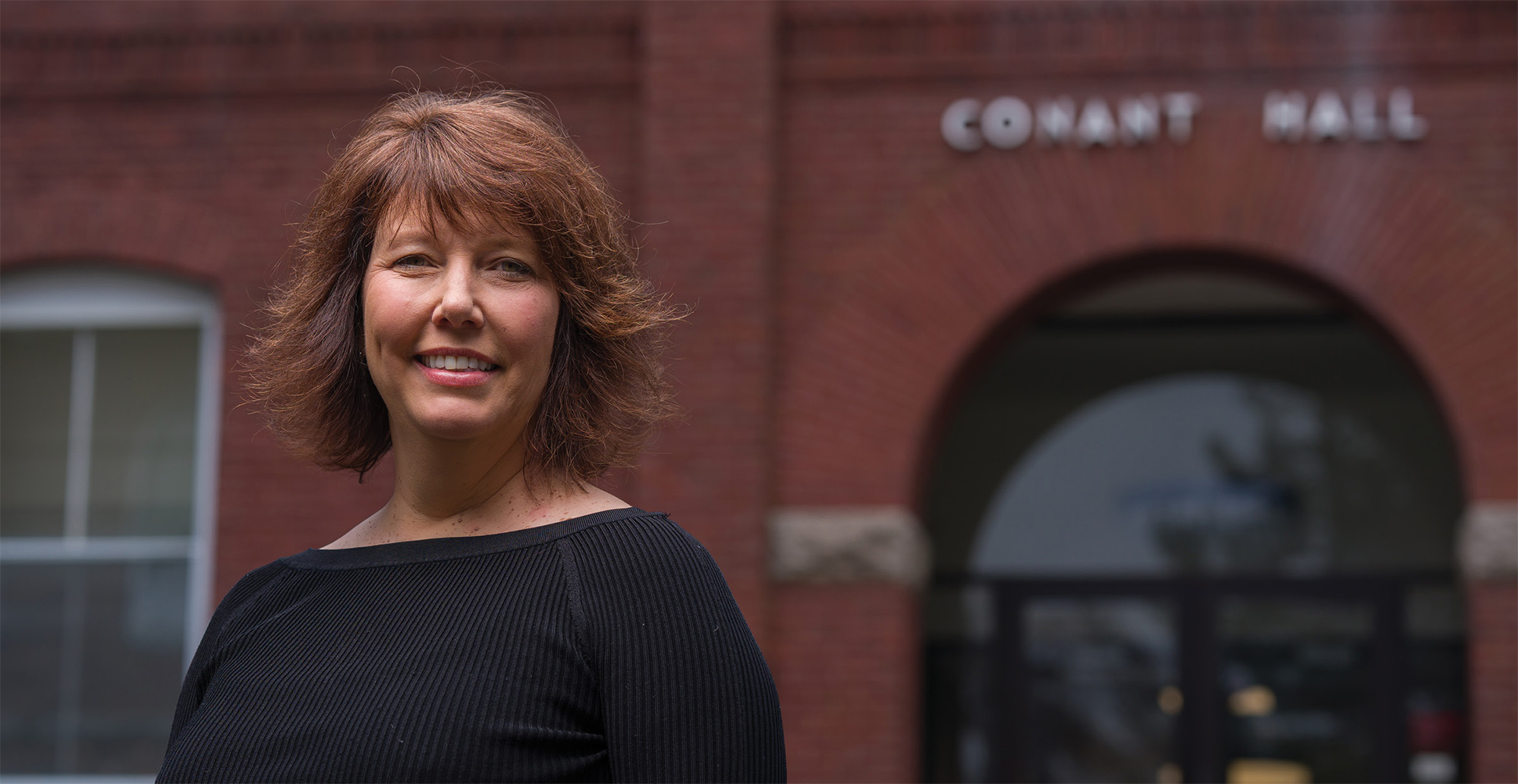
Course-Correcting Early Stress
he adolescence of a rat spans only about three weeks. Yet that tiny snapshot of time may provide insight that can impact humans several decades into adulthood.
Jill McGaughy, professor of psychology at UNH, is working to highlight the ways in which early life stressors — malnutrition, for example — cause issues related to attention that linger well into adulthood, far beyond the duration researchers have previously estimated.
“These road maps are laid down really early. We now know that childhood adverse events are a major factor in how your mental health and cognition look throughout your life,” McGaughy says.
Industry Partnerships at The Edge

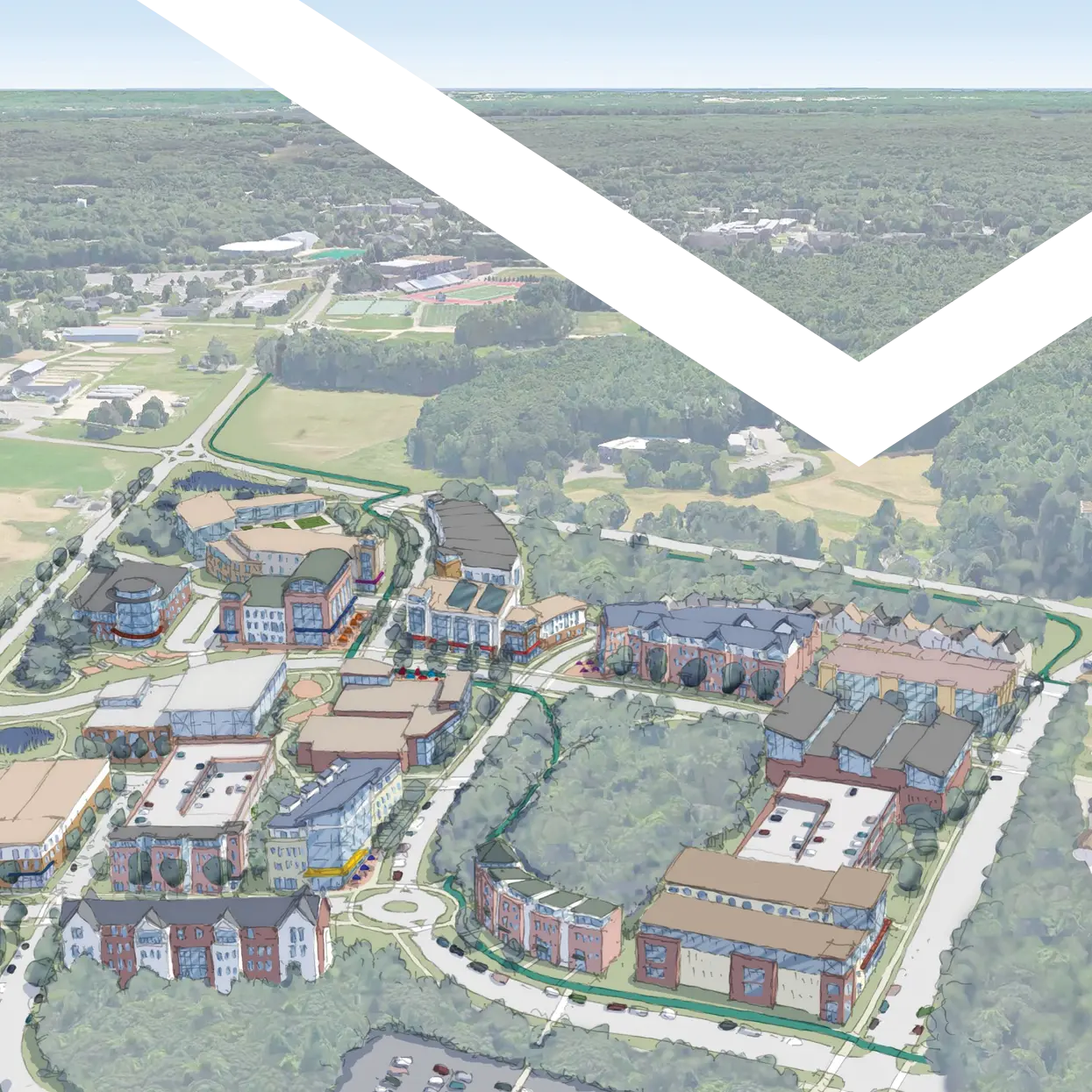

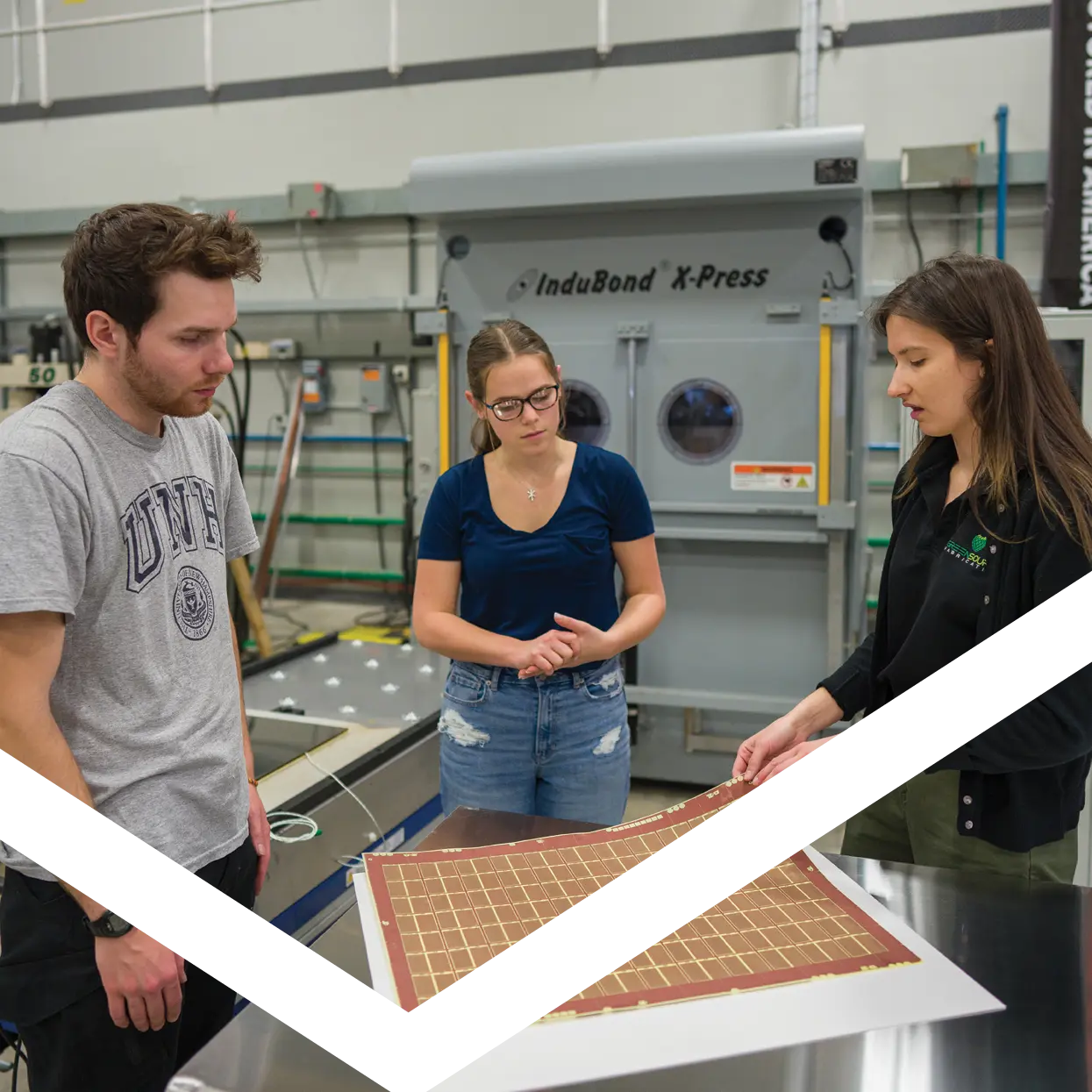
t a recent visit to UNH’s John Olson Center for Advanced Manufacturing, U.S. Senator Maggie Hassan connected with companies from New Hampshire and beyond who are either utilizing, or want to gain access to, the technology-rich facility on the edge of campus.
GreenSource Fabrication has moved a piece of its production equipment to Durham and is hiring UNH student-interns to conduct experiments that will help the Charlestown, N.H., printed circuit board manufacturer maximize its potential. Exail is a global technology company working closely with UNH to leverage each other’s expertise on ocean mapping and industrial know-how as they ramp up production of Exail’s uncrewed ocean surface vehicle DriX in the U.S.
Research Snapshots
Photo by Elizabeth Mamros

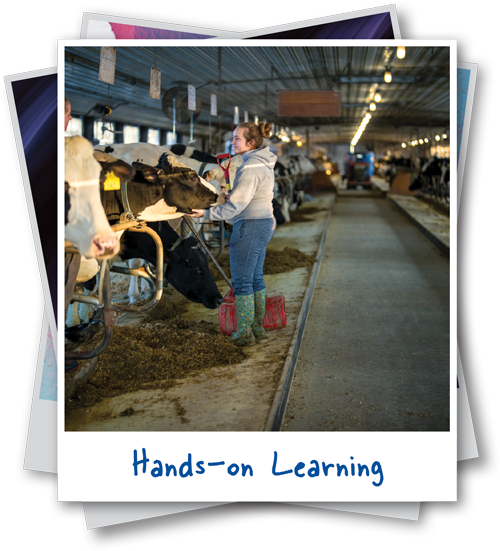
Photo by Jeremy Gaskowski
Photo by Jeremy Gaskowski
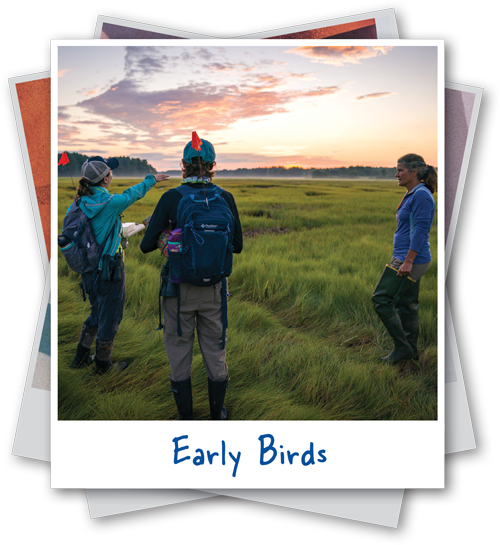

Photo by Casey Golomski
FY22 by the numbers
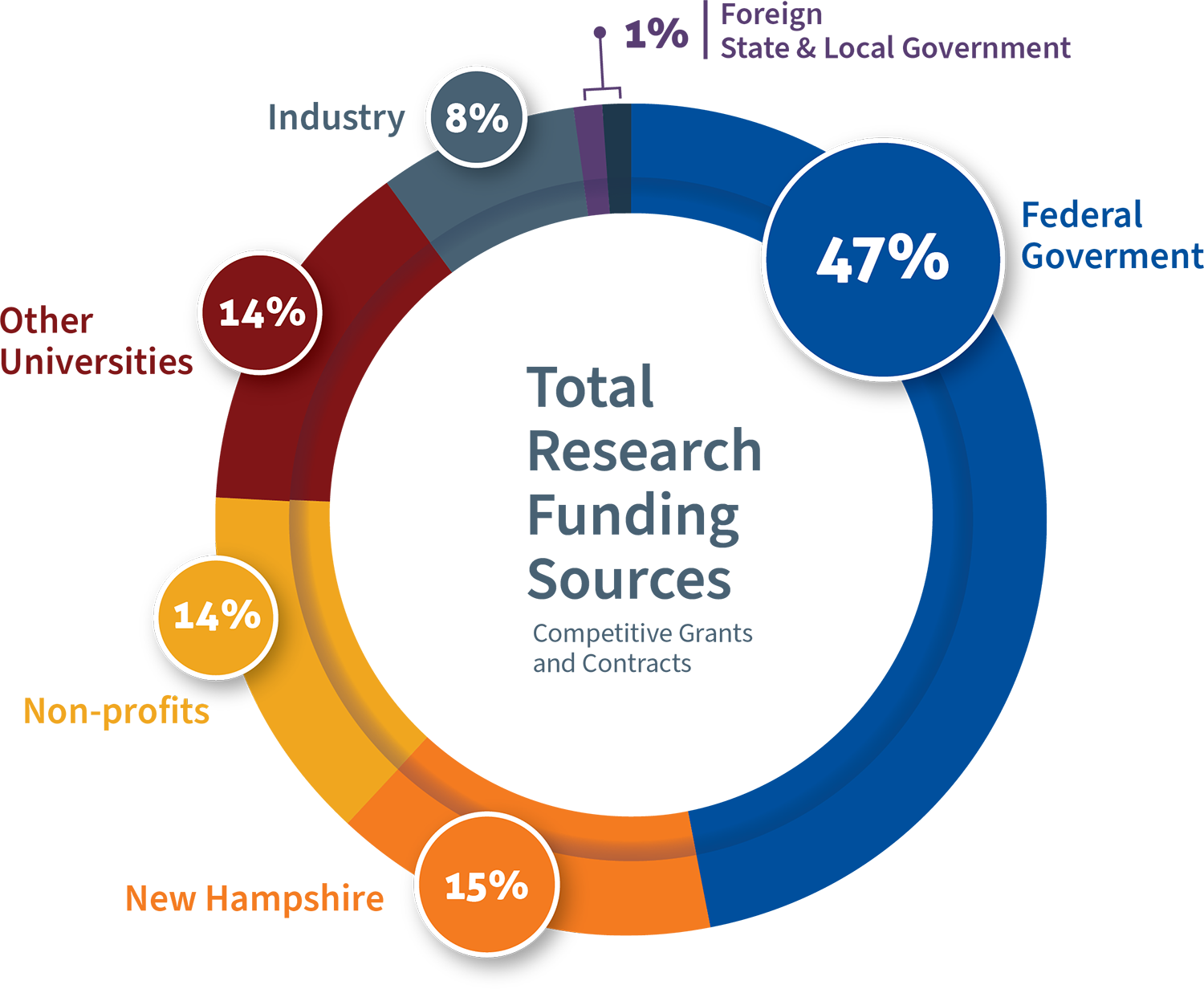
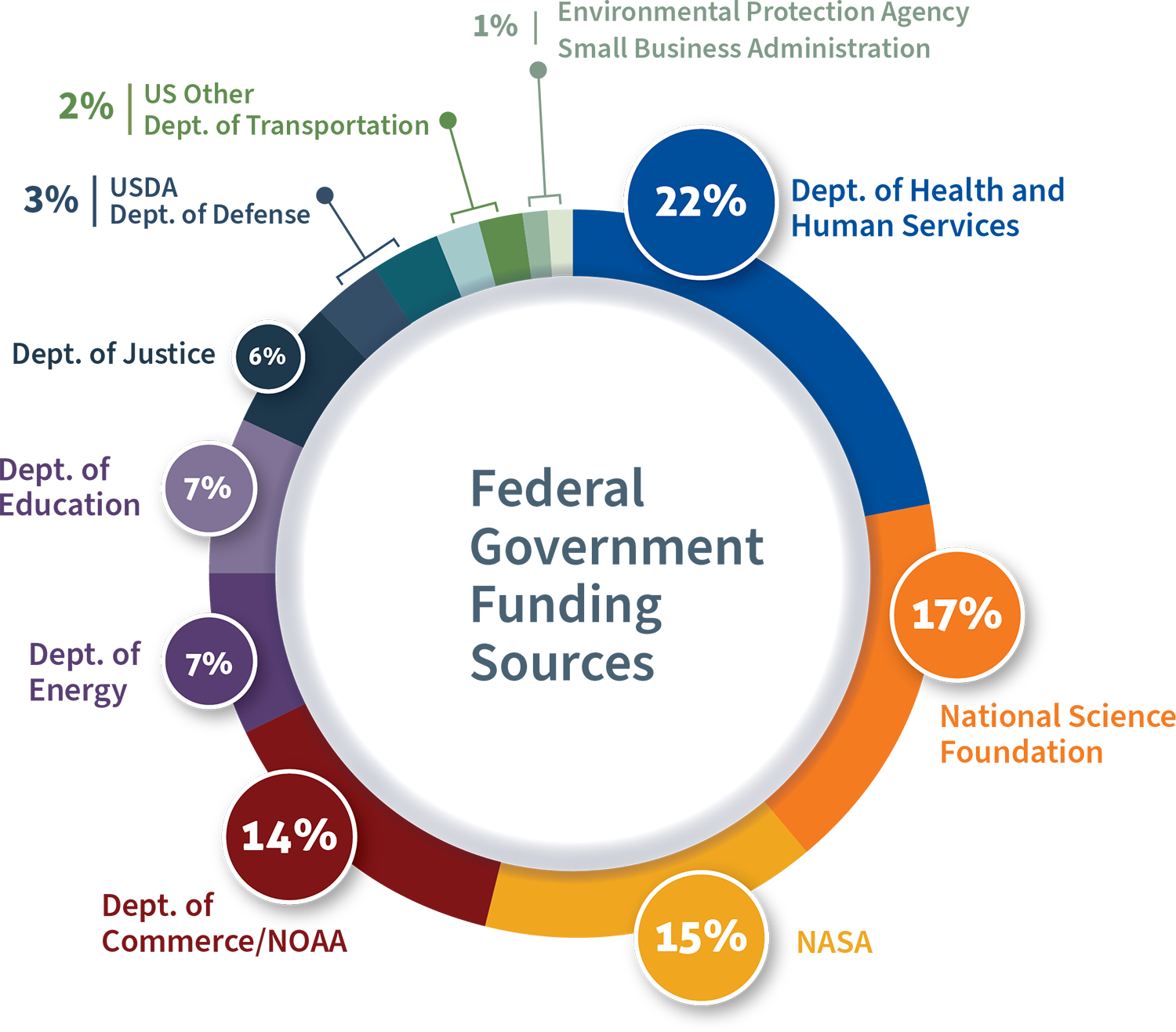
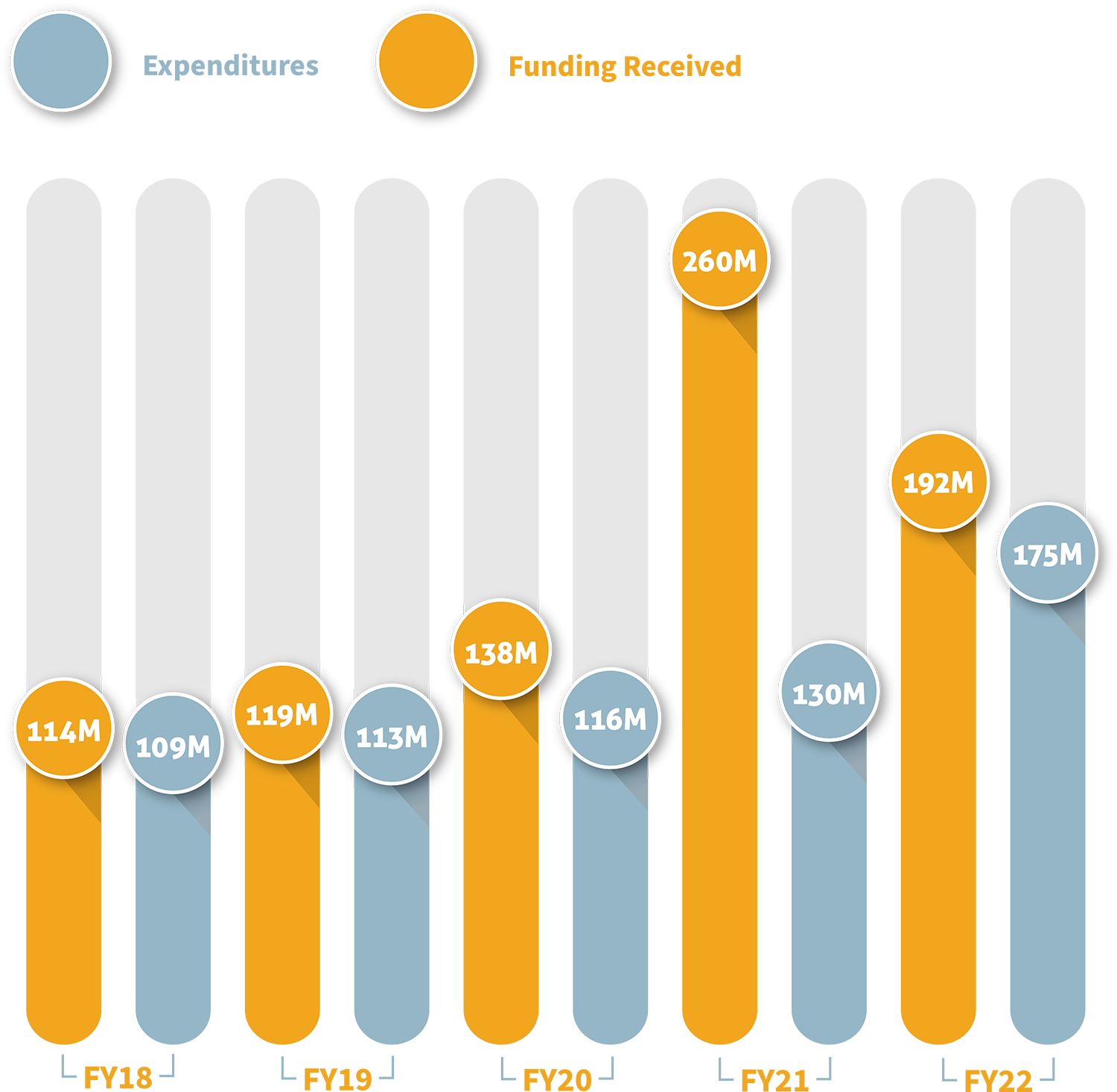
Research Funding

Extension

Professional Development & Training

Innovation

Youth Programs

Scholarly  Creative Works
Creative Works
By David Bachrach, professor of history
Edited by Anne Norton Holbrook and Dan Beller-McKenna, associate professor of music
Andrew Boysen, professor of music, conductor; with Amanda Munton, resident artist, soprano and Rob Haskins, professor of music, narrator
Edited by Marla Brettschneider, professor of women’s and gender studies and political science
By Patricia Emison, professor of art and art history
By Karen A. Mingst, Margaret P. Karns and Alynna J. Lyon, professor of political science
By David Rivard, professor of English
By Paul Robertson, senior lecturer, classics, humanities and Italian studies
By the late Charles Simic, professor emeritus
David Upham, assistant professor of music, conductor; featuring Elizabeth Gunlogson, associate professor of music, clarinet, and Deborah Rentz-Moore, resident artist, mezzo-soprano
University of New Hampshire
SPARK
2023 Research Review
President
James W. Dean Jr.
Provost and Vice President for Academic Affairs
Wayne Jones
Senior Vice Provost for Research, Economic Engagement and Outreach
Marian McCord
Beth Potier
Writers
William Ewing
Nicholas Gosling ’06
Sharon Keeler
Robbin Ray ’82
Sarah Schaier
Keith Testa
Design
Sandra Hickey ’04
Jeremy Gasowski
Contributing Photographers
Tim Briggs
Spenser Flood
Brooks Payette ’12
Sydney Staples ’25
COPY EDITOR
Keith Testa
Cyndee Gruden, Dean
College of Health and Human Services
Kirsten Corazzini, Dean
College of Liberal Arts
Michele Dillon, Dean
College of Life Sciences and Agriculture
Anthony S. Davis, Dean
Peter T. Paul College of Business and Economics
Lucy Gilson, Dean
University of New Hampshire at Manchester
Michael Decelle, Dean
UNH Franklin Pierce School of Law
Megan Carpenter, Dean
Graduate School
Cari Moorhead, Dean
Cooperative Extension
Kenneth La Valley, Vice Provost of Outreach and Engagement and Director
Institute for the Study of Earth, Oceans, and Space
Harlan Spence, Director
School of Marine Science and Ocean Engineering
Diane Foster, Director
Carsey School of Public Policy
Daniel Bromberg, Interim Director
All rights reserved.
2 Days.
8 Communities.
300 Miles.
On a tour across New Hampshire in November, UNH leaders visited eight communities and six counties to meet with Granite Staters and hear how UNH’s partnerships are working in their communities to address unique, regional challenges. Stops included an oyster farm, downtown development projects in Franklin and Rochester, a rural regional hospital, a high school technology education center, an apple orchard and a high-tech start-up that is building space satellite systems.

